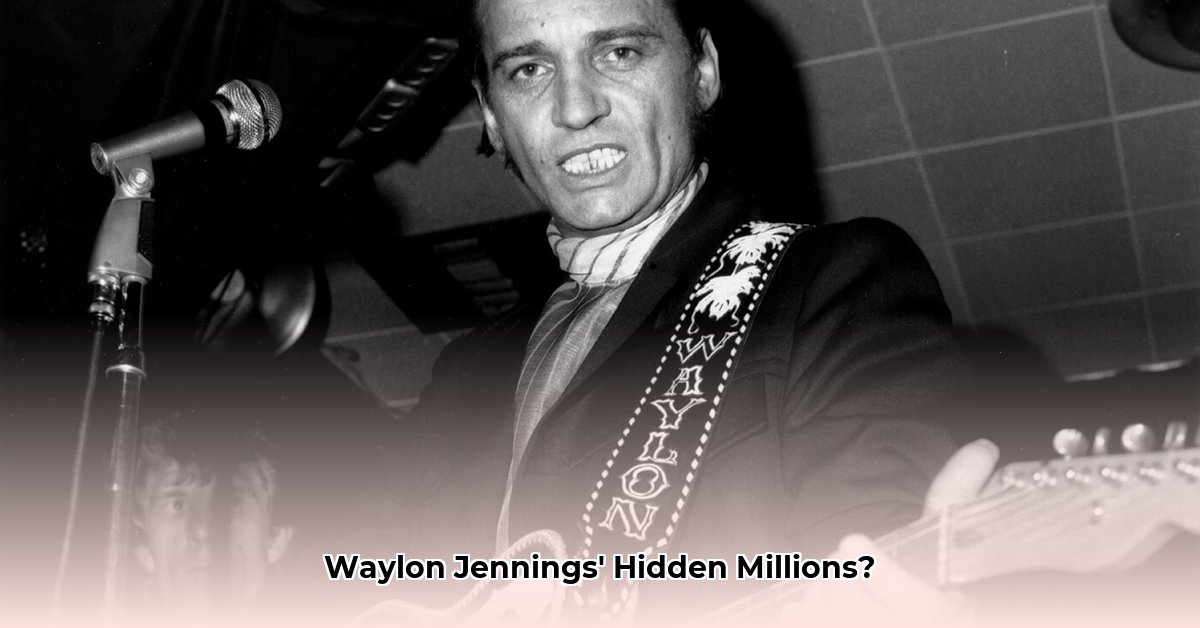
Waylon Jennings' Enduring Financial Legacy: More Than Just a Number
Waylon Jennings: the name conjures images of rebellious grit, a voice that challenged Nashville's conventions, and a musical legacy that continues to resonate. But beyond the iconic outlaw persona lies a surprisingly robust financial story. This article explores the evolution of Waylon Jennings' net worth, from his passing in 2002 to its current valuation, examining the shrewd management, enduring popularity, and strategic decisions that have preserved and even expanded his financial legacy. We'll delve into the intricacies of his estate, comparing his success to other country music giants, and revealing the secrets behind building and protecting a musician's fortune.
The Dollars and Cents: Unpacking Waylon's Financial Footprint
At the time of his death in 2002, estimates placed Waylon Jennings' net worth at approximately $7 million. While seemingly modest compared to some modern superstars, this figure requires careful contextualization. Inflation alone dramatically diminishes the purchasing power of that sum in today's market. More significantly, however, Jennings' estate has generated substantial income since then, a testament to the enduring power of his music. His albums continue to sell, his songs are streamed millions of times annually, and his music licenses consistently generate revenue from film, television, and advertisements. This consistent revenue stream, fueled by the unwavering popularity of his music, is the cornerstone of his lasting financial success. How much is he worth now? Estimates vary, but some place his current net worth considerably higher, in the range of $20 million or more. This variance highlights the complexities of evaluating a musical legacy that extends far beyond initial album sales.
How has this been possible? The answer lies in astute business acumen and strategic estate management. Did Waylon Jennings' estate cleverly leverage the enduring popularity of his music? Absolutely.
The Strategic Management of a Musical Legacy
The ongoing success of Waylon Jennings' estate is not solely attributable to his musical talent; it's also a testament to effective management. Individuals like Jessi Colter and Shooter Jennings, deeply committed to preserving his legacy, have played instrumental roles. Through strategic remastering of albums, the organization of tribute concerts, and the expertly managed auctioning of personal memorabilia, they have not only honored his memory but also ensured the continued relevance and profitability of his music. These actions weren't merely sentimental gestures; they were calculated business decisions designed to maximize the financial potential of his artistic legacy.
This proactive approach highlights a key takeaway: the continued financial success of a musician's estate isn't simply about the initial success of their music. It's about continued engagement with the audience and smart, long-term strategic planning.
The Enduring Appeal of Outlaw Country and its Financial Implications
Why does Waylon Jennings' music continue to resonate decades after his death? His "outlaw country" persona wasn't a manufactured image; it was an authentic reflection of his rebellious spirit and unwavering commitment to genuine artistic expression. This authenticity, this raw defiance of convention, continues to captivate audiences and fuel the ongoing financial success of his estate. This resonates deeply, contributing significantly to the lasting value of his legacy.
How does a musician's legacy translate into long-term financial success? It's a powerful combination of artistic impact, strategic management, and enduring appeal. Waylon Jennings' success story provides a compelling blueprint for future artists and their estates.
The Future of the Outlaw's Fortune and Key Takeaways
What does the future hold for the Waylon Jennings estate? The possibilities are vast. Continued strategic expansion, exploring emerging avenues such as NFTs and interactive fan experiences, will be key to maintaining relevance in an ever-evolving landscape. The focus will continue to be on innovative methods to keep his spirit and music alive in the cultural consciousness, solidifying his financial legacy for generations to come.
Key Takeaways:
- The valuation of a musical legacy is complex, encompassing various income streams and market fluctuations.
- Posthumous income streams, such as streaming royalties, album sales, and licensing, are critical contributors to an estate's value. Efficient management of these assets is paramount.
- Effective estate planning, including proactive licensing agreements and diversification of revenue streams, is essential for long-term financial success.
- The expertise of a skilled management team is invaluable in maximizing the financial potential of a musical estate.
- Waylon Jennings' success story showcases the powerful interplay between artistic impact, strategic business decisions, and the enduring appeal of authentic artistry.